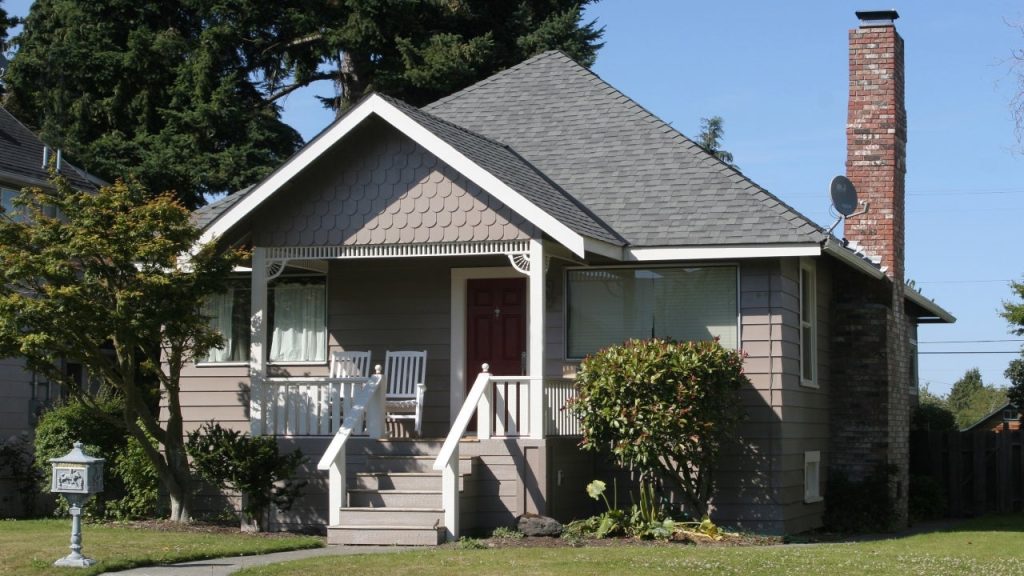Key takeaways
- The median down payment on a home in the U.S., as of January 2025, was $54,310 – about 15% of the median purchase price.
- Most housing market data focuses on the median down payment rather than the average because the median is a better measure of what the typical borrower contributes.
- Median down payment amounts vary widely throughout the U.S., from less than $20,000 to nearly $200,000.
If you’re thinking about buying a home, you may assume you need a 20 percent down payment. But while that number has been considered the standard for many years, most mortgages don’t require a 20 percent down payment — and it’s definitely not typical for homebuyers today.
Here are the numbers you’ll need to know when setting your down payment savings goal.
$54,310
The median down payment on a home in the U.S. in January 2025 – a 10.8% year-over-year increase. The median sale price of a home that month was $362,000.
Source:
ATTOM
What is the average down payment on a house?
In January 2025, the median down payment on a home in the U.S. was $54,310, according to research from real estate data firm ATTOM. That’s 15 percent of the median sale price of a home in the U.S. at the time.
But that figure includes all buyers. If you dig a bit deeper, the median down payment varies quite a bit based on a buyer’s history. For example, repeat buyers — those who have previously owned a home — make a median down payment of 18 percent, while first-time buyers make a median down payment of 9 percent, according to 2024 data from the National Association of Realtors.
The housing market is constantly evolving, and so is the typical down payment. As you can see on the chart below, as property values have soared in recent years, so has the amount people tend to put down on their mortgages.
Average vs. median down payment
While you might be searching for the average down payment on a home, most housing experts focus on the median. Why? The median — which is the middle value in a data set — is a better indicator of what’s typical. The average, on the other hand, can be skewed by borrowers making unusually high or unusually low down payments.
Down payments by state
-
State Median down payment (Jan. 2025) Alabama $27,500 Alaska N/A Arizona $72,225 Arkansas $30,000 California $145,000 Colorado $107,149 Connecticut $65,000 Delaware $70,600 Washington, D.C. $100,000 Florida $61,000 Georgia $43,485 Hawaii $189,700 Idaho $80,000 Illinois $33,000 Indiana $40,800 Iowa $28,100 Kansas $52,750 Kentucky $30,000 Louisiana $22,500 Maine $63,325 Maryland $55,500 Massachusetts $109,950 Michigan $24,500 Minnesota $42,537 Mississippi $14,950 Missouri $16,750 Montana N/A Nebraska $33,500 Nevada $89,600 New Hampshire $87,000 New Jersey $100,000 New Mexico $55,941 New York $66,000 North Carolina $60,000 North Dakota $26,500 Ohio $27,000 Oklahoma $22,221 Oregon $87,526 Pennsylvania $37,500 Rhode Island $83,400 South Carolina $51,877 South Dakota $29,562 Tennessee $45,000 Texas $11,000 Utah $198,950 Vermont N/A Virginia $58,000 Washington $105,000 West Virginia $24,300 Wisconsin $40,000 Wyoming $198,425 Note: Data was unavailable for Alaska, Montana and Vermont. Source: ATTOM
Average down payment by age
In general, the younger the buyer, the smaller the down payment. Older buyers are more likely to be able to sell a previous home to fund a down payment or have had more working years in which to save up for the purchase.
| Age group | Median down payment percentage |
|---|---|
|
Homebuyers aged 26-34 |
10% |
|
Homebuyers aged 35-44 |
14% |
|
Homebuyers aged 45-59 |
17% |
|
Homebuyers aged 60-69 |
28% |
|
Homebuyers aged 70-78 |
36% |
|
Homebuyers aged 79-99 |
38% |
| Source: National Association of Realtors |
Down payment requirements for different mortgage types
The minimum amount you’ll need for a down payment depends on the cost of the home and the type of mortgage you have. The requirements range from no down payment at all to 10 percent or more. Here’s an overview:
How much do you need for a down payment?
Making the minimum down payment is always an option, but there are pros to putting down more. The larger your down payment, the less you’ll need to borrow and the lower your monthly payments and total interest costs. You’re also more likely to get a better interest rate on your mortgage. And a bigger down payment translates into more equity in the home to start — a tappable asset, as well as a potential safeguard against any declines in home values.
If you’re looking for ways to increase your down payment savings, consider that 14 percent of current homeowners used a financial gift from family and friends for a down payment on their first home, while another 14 percent used an assistance loan or program for first-time buyers, according to Bankrate’s Down Payment Survey.
Although 20 percent is no longer required by lenders, if you can put that amount down on a conventional mortgage, you’ll avoid paying for private mortgage insurance (PMI), which is an extra charge tacked onto your monthly payment until you reach 20 percent equity in your home.
Ultimately, however, whether you decide to put down more than the minimum depends on your finances and what will make you feel most comfortable. If you’ve been renting for awhile and have limited savings, pulling together at least the minimum down payment might be preferable to continuing to rent, especially if your housing needs have changed. Buying a home sooner rather than later also moves you quicker into wealth-building territory, acquiring as an asset you can pass down to future generations.
Down payment examples
We’ve done the math to help you estimate your down payment at various price points.
| Home price | 3% down | 10% down | 20% down |
|---|---|---|---|
| $200,000 | $6,000 | $20,000 | $40,000 |
| $300,000 | $9,000 | $30,000 | $60,000 |
| $400,000 | $12,000 | $40,000 | $80,000 |
| $500,000 | $15,000 | $50,000 | $100,000 |
| $600,000 | $18,000 | $60,000 | $120,000 |
| $700,000 | $21,000 | $70,000 | $140,000 |
| $800,000 | $24,000 | $80,000 | $160,000 |
| $900,000 | $27,000 | $90,000 | $180,000 |
| $1 million | $30,000 | $100,000 | $200,000 |
FAQ
Additional reporting by Maya Dollarhide
Read the full article here









